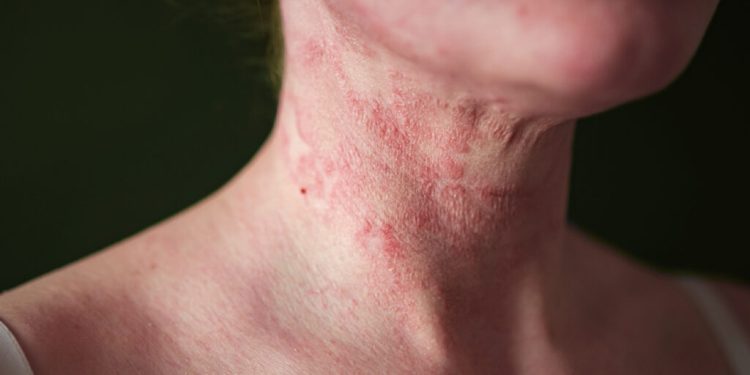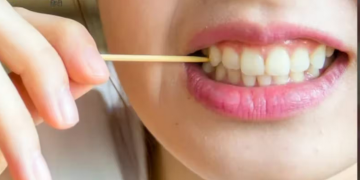What is Atopic Dermatitis?
Atopic Dermatitis is a chronic condition. It is also categorised as a kind of eczema. It causes irritation, inflammation, redness, excessive itchiness and dry patches on the skin. Atopic Dermatitis can occur at any time during your life. However, it commonly occurs during childhood. Therefore, almost 90% of people affected with Atopic Dermatitis develop symptoms before they turn five. However it goes away completely in some cases when a person grows up.
Visit this site: topmagazines
Click here: Newmags
Visit The latest website: 9xnews
Latest website: Newsmartzone.com
Although it is a recurring disease, it cannot spread through skin contact. It is more common in people with an atopic tendency. Thus, those who have Atopic Dermatitis may also suffer from other diseases like hay fever, food allergies, and asthma. Though there is no effective cure for this disease yet, a Dermatologist in Doctors Hospital can help you in managing the symptoms of Atopic Dermatitis.
What are The Causes of Atopic Dermatitis?
The causes of Atopic Dermatitis are yet to be known. However, several factors play a part in causing it. For example: if your skin’s natural barrier is compromised, it can become a reason for several allergies, irritations, and inflammation. Thus anything that disrupts your skin’s natural barrier, it can cause Atopic Dermatitis.
Some other reasons that may cause Atopic Dermatitis are:
- Your skin’s reaction to allergies: If you have a tendency to get a reaction in response to irritants or allergens, it may result in Atopic Dermatitis.
- Your family’s history and genetics: If there is a history of Atopic Dermatitis in your genes, you are at a risk of getting it too. Moreover, if you have a family history of other diseases under the same classification, like hay fever or asthma, you are at a higher risk of developing Atopic Dermatitis.
Not only that but there are some other reasons that may result in a flaring up your Atopic Dermatitis. Those are:
- Taking long showers
- Scratching vigorously
- Allergens
- Stress
- Sweating
- Dry weather
- Harsh soaps and wearables
- Some food items
What Are the Symptoms of Atopic Dermatitis?
Some symptoms of Atopic Dermatitis are:
- Itchy skin
- Dry skin
- Red or brown patches on face and wrists
- Scaly skin
- Rashes
- Thick or cracked skin
- Bumps that may result in leakage of fluid if scratched
- Sensitive or swollen skin due to scratches
What Are Some Complications that Atopic Dermatitis Can Cause?
Although Atopic Dermatitis is not a life-threatening disease, it can cause these complications:
- Other Diseases: People with Atopic Dermatitis can develop other diseases like asthma and hay fever.
- Itchiness and Sleep Problems: The constant cycle of itchiness that comes with Atopic Dermatitis is hard to get rid of. A person may feel the urge to scratch again and again once they lie down on the bed, which means they won’t be able to catch a peaceful sleep.
- Skin infections: Since the skin is already sensitive due to inflammation and rashes caused by Atopic Dermatitis it becomes more prone to attracting bacteria and viruses which leads to other skin infections.
How is Atopic Dermatitis Diagnosed?
Your doctor may ask you questions like your family history and your history with allergies when they start diagnosing you. Then they will proceed with physical examination of the skin, skin allergy test, skin biopsy and blood tests to make sure that you are infected with Atopic Dermatitis and it is not some other infection.
What are the Treatments for Atopic Dermatitis?
There is no permanent cure for Atopic Dermatitis. However, following are some tips that work for patients of Atopic Dermatitis:
- Moisturise your skin.
- Avoid long baths.
- Wear light fabrics.
- Avoid scratching your skin repeatedly.
- Use a room humidifier.
In severe cases of Atopic Dermatitis, a Dermatologist in Hashmanis hospital suggests these treatment methods:
- Steroids and topical ointments
- Topical medicines
- Antibiotics
- Antihistamines to decrease severe itching
- Immunosuppressives and anti-inflammatory agents
If you have symptoms or signs of Atopic Dermatitis, you must consult a dermatologist in Doctors hospital. They can guide you about self-care treatments and suggest relevant medications.
















